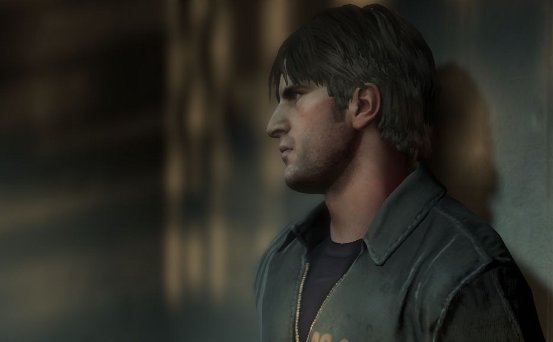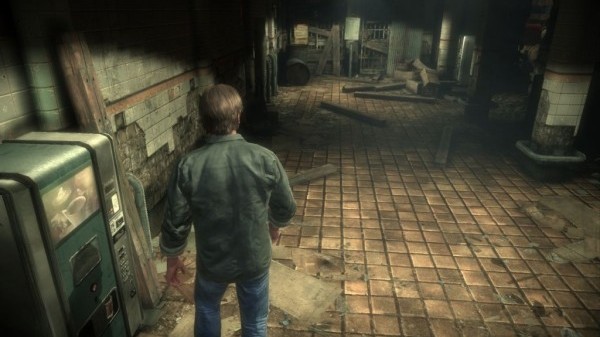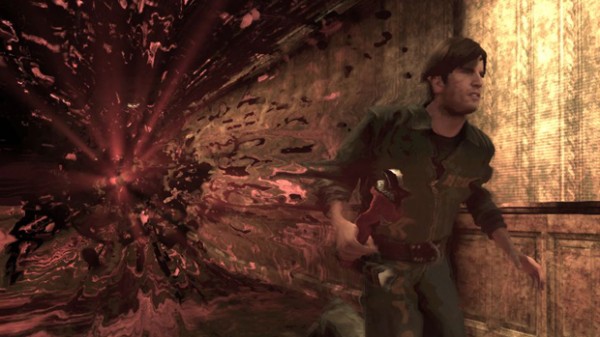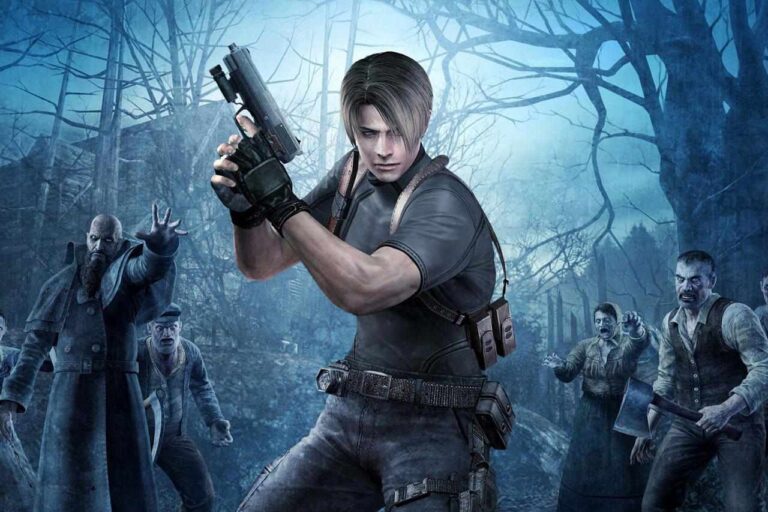
The Silent Hill series has always stood out as a leader in the portrayal of the human condition. This portrayal secures its place as one of the most remarkable video game series of all time. Furthermore, it establishes that no matter how hard critics want to fight it, video games are not only a viable medium to tell a good story, but an excellent one.
Prison, much like Silent Hill itself, is full of symbolism. A prisoner, confined not only by steel bars and cement walls, but a sense of guilt and suffering. A great amount of time and energy has been dedicated to how to effectively deal with people who break the rules of our society. How do we punish them? Do we rehabilitate them to become productive members of society? Do we kill them, or simply lock them away in cages to rot, forever reminded that we don’t want them in the outside world?
While Silent Hill Downpour might not be a fan favourite, its lead character, Murphy Pendleton, should be. In him, Konami and Vatra have created the most powerful, real protagonist in the series’ history. Whether it’s being frustrated with a puzzle, being terrified at what we’re seeing, or being torn over the right thing to do, in Prisoner RS237A, we can see a lot of ourselves. And while we may not have taken a liking to the man at the beginning of the game, we definitely felt ourselves rooting for him at the end, hoping that he would wake up from the nightmare that is Silent Hill.
Going into the game, not much is actually known about Murphy. Character revelation is slow, and takes place through the course of the game. What is revealed of his life before Ryall State and Silent Hill are told in perfect Silent Hill fashion – through flashbacks, eerie, targeted letters, and documents and words of warning from people he used to know. What’s most profound about Murphy is that he appears to be a regular person, almost like Travis Grady, mixed up in a series of rather extremely unfortunate circumstances. Once a loving husband, a devoted father, a man on top of the world until it all came crashing down on him.
A soft-spoken, gentle giant. His mentors see him as different from all the other prisoners and he is labelled a model prisoner. He’s not the man he’s painted out to be – perhaps Vatra wasn’t headed in such a crazy direction with this character after all? Despite these words of encouragement, Murphy’s mind is plagued with self-loathing and guilt.
“It’s me. Always been me, my own worst enemy. The one who always screws up and lets others down. I’ve tried so many times to start over and find my way to peace, but then…Back in the can the Chaplain told me that I should not punish myself, but it’s the only thing I’ve got left under my control. Maybe this horrible place is exactly where I’ve been heading to all these years?”
The first thing players are tasked with in Downpour is indeed a gruesome one. To prove that Murphy Pendleton can run with the big boys at Ryall State. Meeting with a sequestered prisoner in the showers, Murphy puts the beat down on another man. It’s not made clear if Murphy is a killer, however, as the scene fades to black before the final blow is landed and Murphy awakes from his nightmare.
Could it be? Could this gentle soul actually be a murderer? Could we really be playing as such an outwardly bad guy? Or was it just a bad dream? It’s left purposely ambiguous. It must have been – for shortly after he awakes, Murphy is being escorted out of his prison cell. To freedom?

Murphy landed himself in prison after he stole a police cruiser, evading authorities for several hours. A real hardened criminal right there. However Murphy went from medium to maximum security facility within a few minutes of the game’s intro. What happened? As the story progresses further, Downpour lets players decide just what kind of man Murphy is. Is he a noble man in unfortunate circumstances, or does he really belong where he is? Does he deserve mercy, or eternal punishment?
During his time incarcerated, Murphy befriended Correctional Officer George Sewell. He admits to believing that Sewell is on the level, someone who he can confide in and trust. Someone who could give Murphy what he wanted. And what Murphy wanted most of all was revenge.
It has been widely theorized that one of the worst places to send an offender is to the general population in prison. Depending on your philosophy on how prisoners should be treated, that is. They’re never really rehabilitated and some may wonder if they’re ever really punished. In the community, they just learn how to be a better criminal from people who are more experienced. A life of crime can be a hard thing to escape from. Like a black hole, it sucks you in, tearing at you bit by bit until it consumes you.
The Void, an entity in Downpour’s Otherworld, can be seen as an analogy to the foreboding darkness that surrounded Murphy in prison. When first encountered with the Void, a voice calls to Murphy and tell shim to flee, to not let the void overtake him. And he runs, seeing as how if he doesn’t…well, he dies. This can be a symbolic look at Murphy’s struggle to stay on the straight and narrow. To be a good person, despite all of the bad that’s happening all around him, all the time.

The voice that calls to him is that of Murphy’s good friend and mentor, C.O. Frank Coleridge. While Sewell offered Murphy the attractive option, giving him what he wanted, Coleridge encouraged Murphy to work hard and stay on the path to righteousness. While Sewell encouraged, even goaded Murphy into revenge, into doing what needed to be done, Coleridge helped Murphy secure his parole, the one true path out of his nightmare. He also advised Murphy to stay away from Sewell, claiming that Sewell was not as on the level as he appeared. But revenge was so tempting, and it was being offered up on a silver platter. How could he resist?

This leads us back to the sequestered prisoner in the showers, Patrick Napier. The man who stood at the epicentre of all of Murphy’s suffering was handed to him within the opening minutes of the game. Napier, a pedophile, lured Murphy’s son Charlie away from home and murdered him. After Charlie’s death, the pieces of Murphy’s life crumbled to dust, and despite Charlie’s death clearly being Napier’s responsibility, Murphy is left with a terrible feeling of guilt. If he had just been a better father, if he had just been a better man, Charlie might still be alive.
Clearly, this guy had it coming. But despite all of the hate in his heart for Napier, Murphy was no hardened killer. He hurt him, surely enough, but the final blow was too much for him to handle. Stepping in to help out a friend, like a good friend would, was Sewell. But Sewell’s hand would come at a cost, of course. Perhaps a cost too high for Murphy to pay?
The debt could be repaid, if Murphy would do a favour for Sewell. To get rid of someone who’s been a real problem for the corrupt Sewell. The last favour was to silence Frank Coleridge once and for all. The person who believed that Murphy could defeat his inner demons, to get himself out of the hell hole that was Ryall State. The person that encouraged him to stay on the straight and narrow to the path of freedom. When the time came to determine whether Murphy was able to repay the debt to Sewell, the actions were left up to the player, to seal his fate forever.

Either way you choose, the choice is yours. However not everyone knows what happened. Coleridge’s own daughter, Anne Cunningham is on Murphy’s trail. She has a bone to pick with Murphy, and rightfully so. Murphy may have very well killed her father. How Murphy deals with Cunningham is also left up to the player. Did he escape the void, after fighting tirelessly, or did it consume his soul? The kind of man Murphy Pendleton actually is, underneath of his good intentions and prison garb is entirely dependent on you. Cunningham won’t stop until she has what she’s looking for.
Revenge is a long and treacherous path, isn’t it Mr. Pendleton? Where do you suppose it ends?

 trivard676
trivard676


